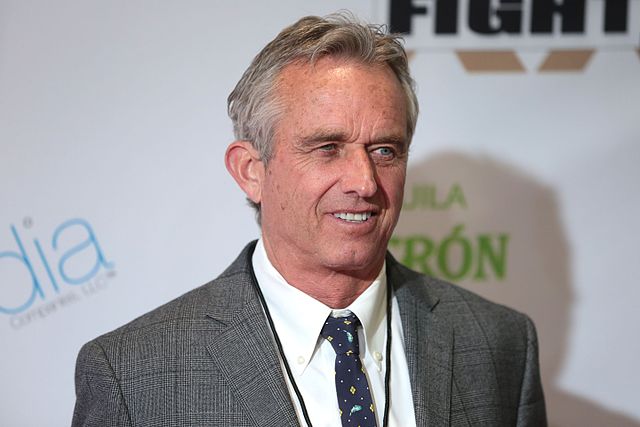Robert F. Kennedy Jr. has successfully met the signature requirement to be included on Utah’s 2024 general election presidential ballot, as verified by the Salt Lake County clerk’s office, CBS News reported on Thursday.
The independent candidate’s presidential endeavor secured the necessary 1,000 signatures, a confirmation provided by Ron Buckley, the voter services manager for Salt Lake County. Although the exact number of signatures was not disclosed, this achievement marks Kennedy’s first qualification for a state’s ballot.
If he manages to secure a place on multiple state ballots, Kennedy’s candidacy could introduce a significant element of unpredictability to the closely observed 2024 presidential race, offering an alternative for voters potentially disinterested in President Biden or the eventual Republican nominee.
In a recent nationwide poll conducted by Quinnipiac, the results of a three-way race involving Kennedy, President Biden, and former President Donald Trump indicated that Biden garnered 38% support, Trump received 36%, and Kennedy secured 22%.
Kennedy’s Utah Presidential Bid: $500 Fee and Paperwork Required

According to Utah state law, Kennedy is required to pay a $500 fee and complete the official paperwork designating him as an unaffiliated presidential candidate.
This paperwork must be submitted between Jan. 2 and March 5, which coincides with Super Tuesday, the day of Utah’s primary elections, despite Kennedy’s non-participation due to his unaffiliated status.
Emphasizing ballot access, both Kennedy and a super PAC supporting him, American Values 2024, are strategically focusing on this aspect.
Ed Rollins, the campaign manager for the 1992 independent candidate Ross Perot, highlighted the significant challenge of ballot access in Perot’s bid.
Recently, Kennedy’s super PAC, American Values 2024, declared plans to invest $10 to $15 million in efforts to secure his presence on the ballot in ten states, including Arizona, Colorado, California, Michigan, Nevada, New York, Georgia, Illinois, Indiana, as well as Texas.
Kennedy initiated legal action contesting Utah’s ballot access deadline, asserting its “unconstitutional” restrictiveness.
In response, the state extended the deadline from Jan. 8 to March 5 earlier this month, providing independent candidates with additional time to meet the requirements.


Comments are closed.